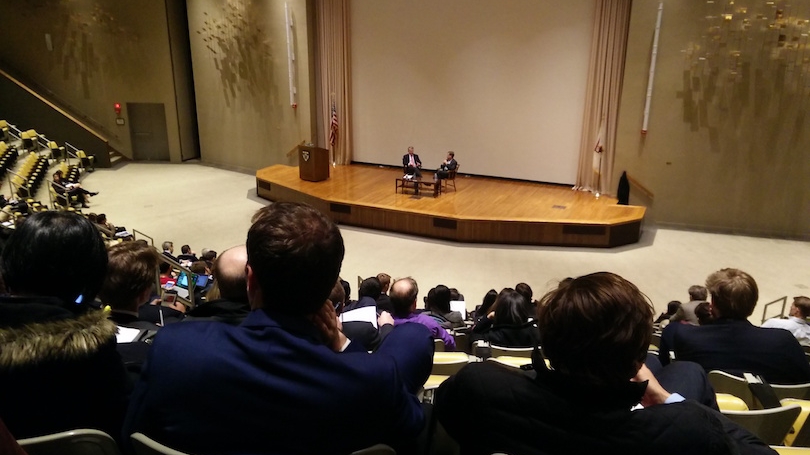
- Public Policy
- Leadership
- Funding
- News & Events
- About the Center
Back to Top Nav
Back to Top Nav
Back to Top Nav
Back to Top Nav
The Harvard Business School Venture Capital and Private Equity Conference on Saturday, January 28th, 2017 was attended by students, entrepreneurs, and investment professionals. The event kicked off with a morning keynote address by Seth Klarman, author of the famous value investing tome, Margin of Safety, and founder of the Baupost Group. Mr. Klarman is still CEO and President Baupost, the now 35 year old hedge fund that has made one of the highest returns of any fund in history. One dollar invested at the inception of the Baupost Group would now be worth over $700. Mr. Klarman talked about how his investment strategy is intensely focused on the microeconomics of companies, in the context of the macroeconomics. He discussed how you can correctly predict macroeconomic and geopolitical events and outcomes, but you cannot predict how the market will react to them.
The remainder of the conference was split between different breakout panel sessions on various topics, peppered in with keynote addresses from leaders in venture capital and private equity. I gained the most from these panel sessions, because there was a large variety of panel topics. At the panel on the State of Venture Capital, venture capitalists who invest in startups from the idea stage to the growth stage shared their insights on how they make investment decisions. Some venture capitalists emphasized the importance of believing in the founder and his team, as their experience and passion for their startup will determine its future. Others liked to look at how their ideas could scale and what the condition of the market they are starting in was, while others still emphasize the quality of the startup’s products. One criteria the venture capitalists seemed to all focus on was the long-term defensibility of the company’s brand and products. They are concerned with how the company will maintain its customer base after numerous competitors spring up, copying their success, and grill founders on what they are planning to retain clients.
The event was unquestionably a valuable experience for me, as it exposed me to the kind of thinking and decision-making processes that successful investors go through. I got insights into the future of technology, what sectors might undergo technological disruption, and gained a healthy respect for the people who fuel the engine of entrepreneurship that makes America prosperous. I got an inside look into the future of entrepreneurship and what will come out of Silicon Valley next, and left optimistic on the future.
- Submitted by Vikas Khanna '19, Rockefeller Mini-Grant Recipient
The Rockefeller Center's Mini-Grants program funds registration fees for students attending conferences, as well as the costs of bringing guest speakers to Dartmouth. The views and opinions expressed here are the author’s own and do not necessarily represent the views and opinions of the Rockefeller Center or constitute an endorsement by the Center.